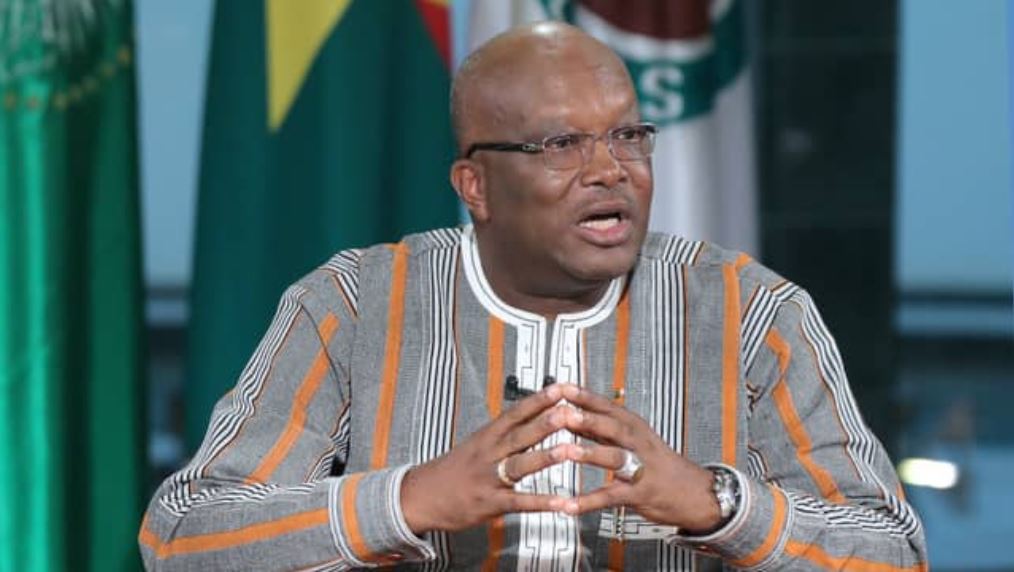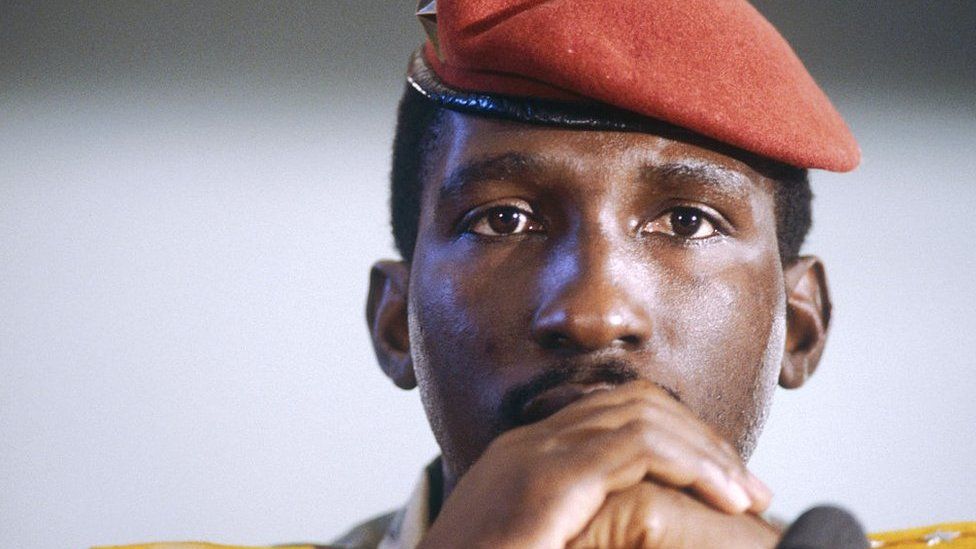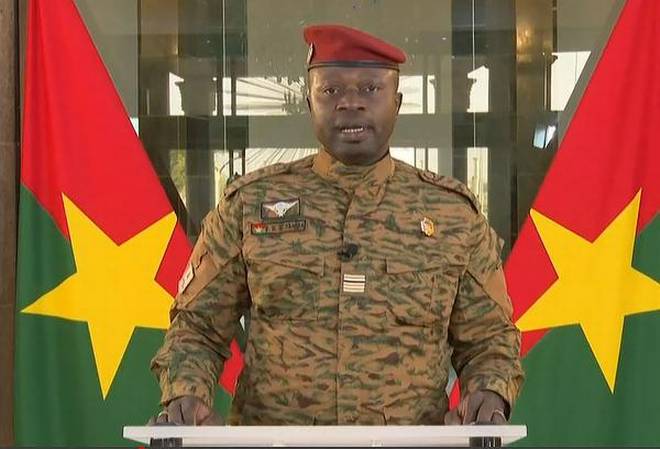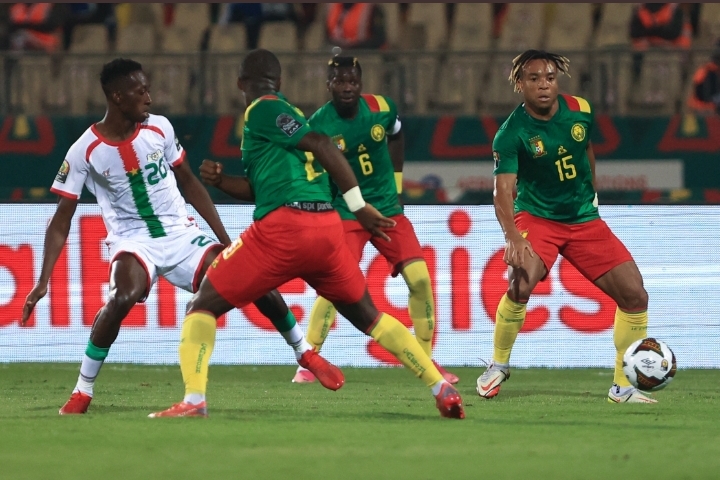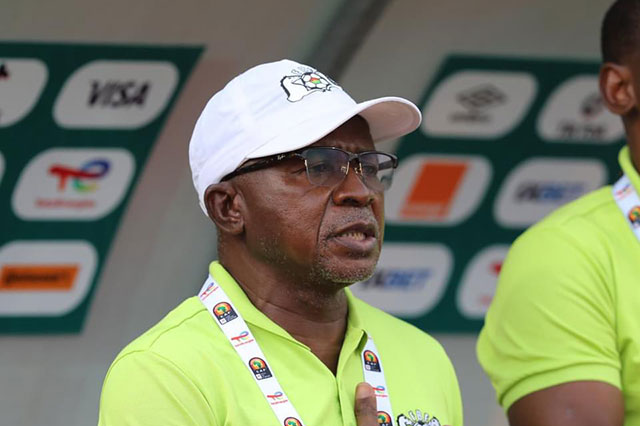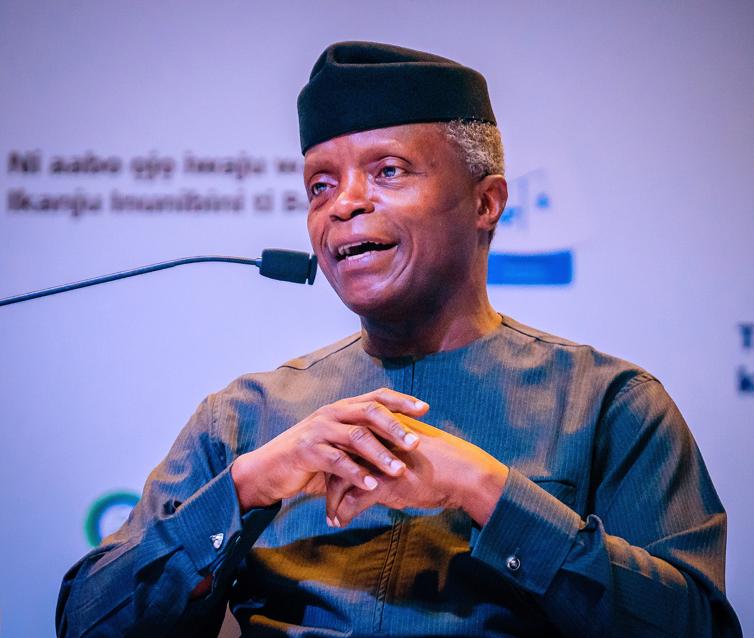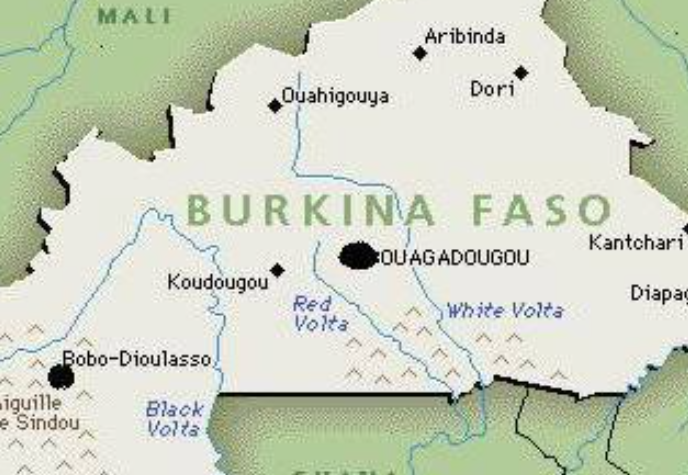By Chidi Amuta
At the height of his revolutionary fervor, Captain Thomas Sankara, embodied the youthful allure of the African coup maker as messiah and hero. Sankara had the additional assets of a fiery Marxist rhetoric and youthful good looks. His dashing ‘can do all things’ charisma contrasted with the dour, calculating mien of his trusted friend and deputy, Blaise Compaore.
A journalist reportedly once asked Sankara at a public event if he was afraid he could be toppled in a counter coup by his military colleagues. He cast a glance to his right hand side where Compaore was seated and replied: “If it is led by Blaise, I don’t stand a chance…” A few weeks later, Sankara was assassinated on the streets of the capital on his way to visit his mother in a common neighbourhood. He was driving himself in a simple tiny Renault 5. The coup and assassination was led by Blaise Compaore who later transformed into a civilian politician and ruled Burkina Faso for the next 27 years. He was later ousted by a popular uprising and chased into exile in Cote d’Ivoire from where he still influences the politics of Burkina Faso.
With a capital whose name sounds more like a staccato of frenzied African witch drum beats, the Sahelian nation of Burkina Faso, formerly Upper Volta before being renamed by Sankara, has just hosted yet another military coup. This ended two days of speculation about the security uncertainty in the country. The military had earlier admitted arresting and detaining the President, Roch Kabore. This followed an earlier eruption of sporadic gunfire in the vicinity of the President’s residence. The soldiers had also neutralized the military formations in and around the capital Ouagadougou. The coup followed days of unrest and popular protests in major urban centres around the country.
These protests had continued frequently in the streets of the capital Ouagadougou and major urban centres following worsening economic and living conditions. In addition, the populace and the political opposition had long voiced open dissatisfaction with the government’s handling of both the economy and the Islamic jihadist insurgency and terrorism in parts of the country. It would be recalled that jihadist terrorists had staged a bloody bomb attack on the cappuccino restaurant at the Splendid Hotel in the heart of Ouagdougou on 15th January, 2016. Again on 4th October, 2019, jihadist terrorists bombed a bus conveying Canadian miners in Madouji, killing over 37 miners. This is the effective backdrop to the latest of West Africa’s resurgence of the culture of military coups.
The formal announcement on Monday night of a military coup in Burkina Faso has not quite come as a surprise to keen watchers. Both the recent internal political wrangling in the country and similar developments in neighboring countries were enough signals that the democratic government in Burkina Faso was creaking under severe pressure and could cave in any time. The country shared the ailments of its recently fallen neighbor in Mali, Chad and Guinea.
As part of the build up of political pressure before the coup, there was an ongoing trial of the former president, Blaise Compaore and his associates over their role in the 1987 assassination of Thomas Sankara. This had heightened political disaffection in the country. Some observers believe that pro-Compaore elements in the military did not take kindly to his trial in absentia and may have signed on to the anti Kabore political movement. Opposition politicians in the country had also allegedly rekindled the Sankara trials in order to douse the mounting pressure by former president Compaore’s supporters to bring him back from exile into power. These extant political motivations could only have added to the current atmosphere of unrest over worsening conditions as well as the fierce urgency of the jihadist insurgency ravaging parts of the country.
On closer look, the Burkina Faso coup is only another episode in what looks more like a viral resurgence of West Africa’s coup culture. As it is, this coup once again places West Africa and the entire Sahel literally under the gun sights of military adventurists. In an earlier clime, coups had swept through Ghana, Nigeria, Benin, Guinea, Liberia and Sierra Leone in a tidal wave of infectious instability. No one is certain what the current Sahelian sweep portends for the rest of the sub region.
Instructively, the putsch in Burkina Faso is coming on the heels of similar recent ones in Mali, Guinea, Chad and even Sudan. In all these countries, the developments that toppled the democratic governments are virtually the same. Popular uprising fuelled by increasingly harsh economic conditions have been exacerbated by partisan squabbles among rival ambitious politicians and factions. In all the countries, these developments have played into the hands of ambitious and politicized military officers waiting in the wings.
In all the cases, intense civil unrest has reflected worsening economic and general living conditions. This has put intense pressure on political disagreements among parties in democracies that are already made fragile by lack of institutional stability and consolidation. Politicians predictably take advantage of current popular disquiet to unsettle their opponents who are in power.
In each of these cases also, the military coup makers have tended to be professional descendants of earlier military adventurers. In much of West Africa, a tradition of politicized military officers and establishments has left generations of officers who see the presidential palace and its incipient luxury as a ready and available alternative habitat to the Spartan bareness of life in the barracks. In other words, West Africa has a latent military oligarchy in the barracks with a lingering appetite for power, privilege and authority.
Countries without entrenched civil democratic traditions and institutions and in which the institutions of national security have been ‘privatized’ to serve successive political regimes lend themselves to frequent upheavals of power. National security becomes regime security and normal political disagreements become veritable threats to national security.
It is however quite significant and frightening that a constant new feature of these recent coups is the recurrence of Jihadist insurgency as a factor in the political instability in the various countries. In Mali, Guinea, Chad and now Burkina Faso, the toppled government’s handling of the jihadist insurgency has been prominent among the reasons cited by popular protesters and coup authors. Except perhaps in Sudan where the coup was mostly the result of long standing internal political quarrels, the jihadist threat to West African countries has featured as a reason for the military takeover. Jihadist elements have mounted unrelenting military pressure on the governments of all these countries and in some cases infiltrated the armed and security forces where they could not defeat them. In some cases, jihadist affiliation has become a short cut to political relevance as prominent jihadist leaders have formed or joined political parties or aggressive factions.
Quite consequentially, the jihadist rampage of terror and insurgency throughout the Sahel has caused severe economic hardship. In that case, they have also become a factor in the economic and social pressures that produce and feature n the civil protests in the most affected countries. It has constricted agricultural land space and forced the rural population of farmers and herders to migrate to more arable and fertile spaces southwards. Humanitarian disasters have become endemic with the attendant hunger, displacements and other vulnerabilities. These have been exacerbated by climate change and the southward expansion of the Sahara desert.
In a sense, therefore, the recent rapid unconstitutional changes of government in West Africa may appear like indirect ‘victories’ for the jihadist forces bent on destabilizing the sub region. It is uncertain if the military juntas that are coming to power in these countries share the sectarian fundamentalist inspiration of the jihadists. It is unclear also if the political elite of most West African states understand the larger strategic meaning of jihadist expansion in the region.
A further disturbing feature of the recent epidemic of coups in West Africa is a clear indication that in most African countries, democracy is still a fragile force. A good number of African countries tend to limit their understanding of democracy to the formation of multiple parties, the conduct of periodic elections and the freedom to form governments and appropriate state power. Scant attention is paid to the entrenchment of the institutions of democracy such as a security force that is doctrinally subordinate to civilian authority, an independent judiciary led by honest judges, a free press and the guarantee of basic freedoms to citizens.
Thus, partisan disagreements among politicians tend to spiral into wild protests in streets inhabited by economically vulnerable populations. These ‘people of the streets’ and their economic travails become ready tinder for ambitious political opponents of the incumbent party. Popular unrest over bad governance and worsening conditions graduates into political capital for ambitious opposition politicians and over politicized military officers. The rest is predictable.
The developments in West Africa ought to concern the United Nations and the international community. The critical point is that democracy as a system of rule based governance is under serious threat in a whole continental sub-region. In a world where populist autocrats have recently come to power to trample on normal democratic rights and norms, this is a dangerous trend. Democracy and global stability are clearly under clear and present threat and danger in West Africa.
We cannot underestimate the threat which regional upheaval and anarchy pose to world peace and global order. The rise of Islamic jihadism in parts of the Middle East in the period after the 9/11 terrorist attacks in the United States led to the emergence of terrorism and instability in most parts of the Middle East. Wars have since broken out in Iraq, Syria, Libya and Yemen. Arms proliferation, humanitarian disasters and the further spread of violent doctrines and theologies have yielded the spread of illegal weapons to unguarded places of the world. There has followed a mass export of jihadism to the Sahel and other vulnerable zones of the world.
The possibility of West Africa becoming the breeding ground of a new wave of military regimes in Africa is now imminent. The world can ill afford an over populated lawless Africa ruled by military despots with rule books that they write themselves. With the world’s largest population of youth and an epidemic of poverty, authoritarian rule is the least desirable option for Africa. The spread of jihadist terror in Africa is already enough strategic headache for those concerned about global peace.
ECOWAS is even more severely tasked by these coups. Reflexive closures of land and air corridors can no longer deter determined autocrats. Rogue regimes have a habit of surviving better in adversity and under sanctions. ECOWAS itself consists of countries that lack the muscle and mechanism to enforce embargoes and sanctions. Determined military despots can only laugh off the reflex diplomatic theatre of bans, border closures, threats, sanctions and routine exclusions. The region has a long established network of cross border black market rackets and semi official channels.
These illegitimate channels serve the needs of gangster regimes that are intent on clinging to power at all costs. Defiance of regional diplomatic initiatives and sanctions becomes expected routine. The military regimes dig in and entrench themselves. They have mastered the language of the current international mood. They will pledge respect for human rights, commitment to constitutional rule, plans to restore democracy and constitutional order etc. etc. But in order to be able to stem the tide of undemocratic regime changes, ECOWAS will need to acquire teeth. But who will pay for a new set of military and economic strangulation teeth?
For Nigeria, the recent epidemic of coups in West Africa ought to be a matter of strategic concern. First, they are direct assaults on our extant leadership responsibility as a stabilizing influence in the ECOWAS region. Beyond sending peace envoys to places with no prospects of peace and trying to cajole determined autocrats to cede power to those they just overthrew, Nigeria’s current leadership role in the troubled spots of West Africa has been rather tepid and effete. Our previous military capacity to compel our desired outcomes in this neighbourhood as in Liberia and Sierra Leone has been dulled by insecurity at home and economic distress. More worrisome is the fact that all the factors that West Africa’s nascent coupists have invoked to justify their adventurism are abundant here as well. In particular, the nuisance of jihadist terror and insurgency has become an endemic headache for Nigeria. Beyond being a strategic diplomatic challenge, therefore, the new wave of coups in West Africa should be a wake up call for a country whose internal security challenges have placed soldiers on the streets of all 36 states and the Federal Capital Territory.
Clearly, the coup in Burkina Faso is both unnecessary and unfortunate. A parched land -locked nation of 20.3 million of some of the world’s poorest citizens hardly needs to regress into authoritarianism to settle political differences. Months after the military adventurists have settled into the pomp and privilege of state power, the protesters and opposition politicians will discover that jihadist insecurity, hunger and poverty do not just disappear simply because a new set of uniformed sheriffs stormed into town.
Ultimately, as in all such disruptions, democracy suffers deadly setbacks and national development takes steps backwards. If this trend takes root in West Africa and spreads further afield again, Africa will once again retreat on all indices of global development. We might as well excuse Africa from the march of human civilization as the rest of the world moves on, indifferent to our self inflicted wounds. Like the rest of West Africa’s recent coup countries, Burkina Faso is not alone. It is ultimately about global peace and stability.
